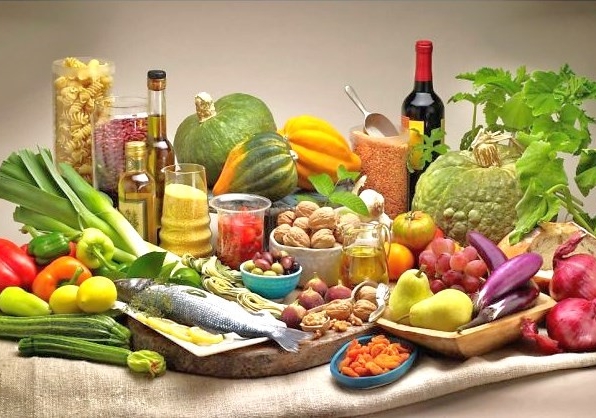The results of a mammoth global study on the effects of diet on health have just been released, and the news is not good. Overall, one in every five deaths from all causes is associated with a poor quality diet. Simply eating better may be the best thing we can do to protect our health…
 And… Here we go, again, with the much-recommended Mediterranean Diet!
And… Here we go, again, with the much-recommended Mediterranean Diet!
It seems that, every time we talk healthy eating, less disease, fighting
obesity or just living longer, we end up back at the same place.
There must be something to it! *WINK*
Teams researchers around the world contributed to the Global Burden of Disease study, just published in The Lancet, tracking trends in consumption of key dietary factors around the world over 27 years.
What they did…
Researchers chose 15 key dietary factors and tracked them in 195 countries around the world from 1990 to 2017. The study looked at 15 dietary elements — diets low in Fruits, Vegetables, Legumes, Whole grains, Nuts and Seeds, Milk, Fibre, Calcium, Seafood Omega-3 fatty acids, polyunsaturated Fats; and diets high in Red Meat, Processed Meat, Sugar-sweetened Beverages, Trans Fatty Acids, and Sodium.
What they found…
Overall in 2017, an estimated 11 million deaths were attributable to poor diet. Diets high in Sodium, low in Whole Grains, and low in Fruit together accounted for more than half of all diet-related deaths globally in 2017.
The causes of these deaths included 10 million from cardiovascular disease, 913,000 cancer deaths, and almost 339,000 deaths from type 2 diabetes. Deaths related to diet have increased from 8 million in 1990, largely due to increases in the population and population aging.
The authors found that intakes of all 15 dietary elements were sub-optimal for almost every region of the world they looked at – no region ate the optimal amount of all 15 dietary factors, and not one dietary factor was eaten in the right amounts by all 21 regions of the world. That includes the wealthiest countries with the best access to the highest quality foods.
(Shame on us all, in the Developed Western World, for not talking advantage of the bounty at our fingertips!)
The takeaway…
It would be easy for many of us around the world to ensure longer lives if we just ate right.
Writing in a comment linked to the study, Professor Nita G. Forouhi of the University of Cambridge School of Clinical Medicine, UK, says: “[T]he current GBD findings provide evidence to shift the focus, as the authors argue, from an emphasis on dietary restriction to promoting healthy food components in a global context. This evidence largely endorses a case for moving from nutrient-based to food based guidelines… There are of course considerable challenges in shifting populations’ diets in this direction, illustrated by the cost of Fruits and Vegetables being disproportionately prohibitive: two servings of Fruits and three servings of Vegetables per day per individual accounted for 52% of household income in low-income countries, 18% in low to middle-income countries, 16% in middle to upper-income countries, and 2% in high-income countries. A menu of integrated policy interventions across whole food systems, internationally and within countries, is essential to support the radical shift in diets needed to optimise human, and protect planetary health.”
My take…
I agree entirely with Forouhi. And I laud her high-profile observation that the cost of a healthy diet is a major deterrent to healthy eating in low-income regions.
It seems we have to make healthy food more affordable and accessible in the poor countries and make it more attractive to consumers in the wealthier countries. From a practicality standpoint, the first of those goals will be much easier to achieve than the second. We sure do love our Red Meats, Processed Foods, Salt and Sugar here in the ‘Developed’ West. There are still many folks around who would say, “You can take my Salt shaker when you pry it out of my cold, dead hands!”
On a brighter note, think of all the money we could save on health care costs – and the uses we could put that money to…
~ Maggie J.

